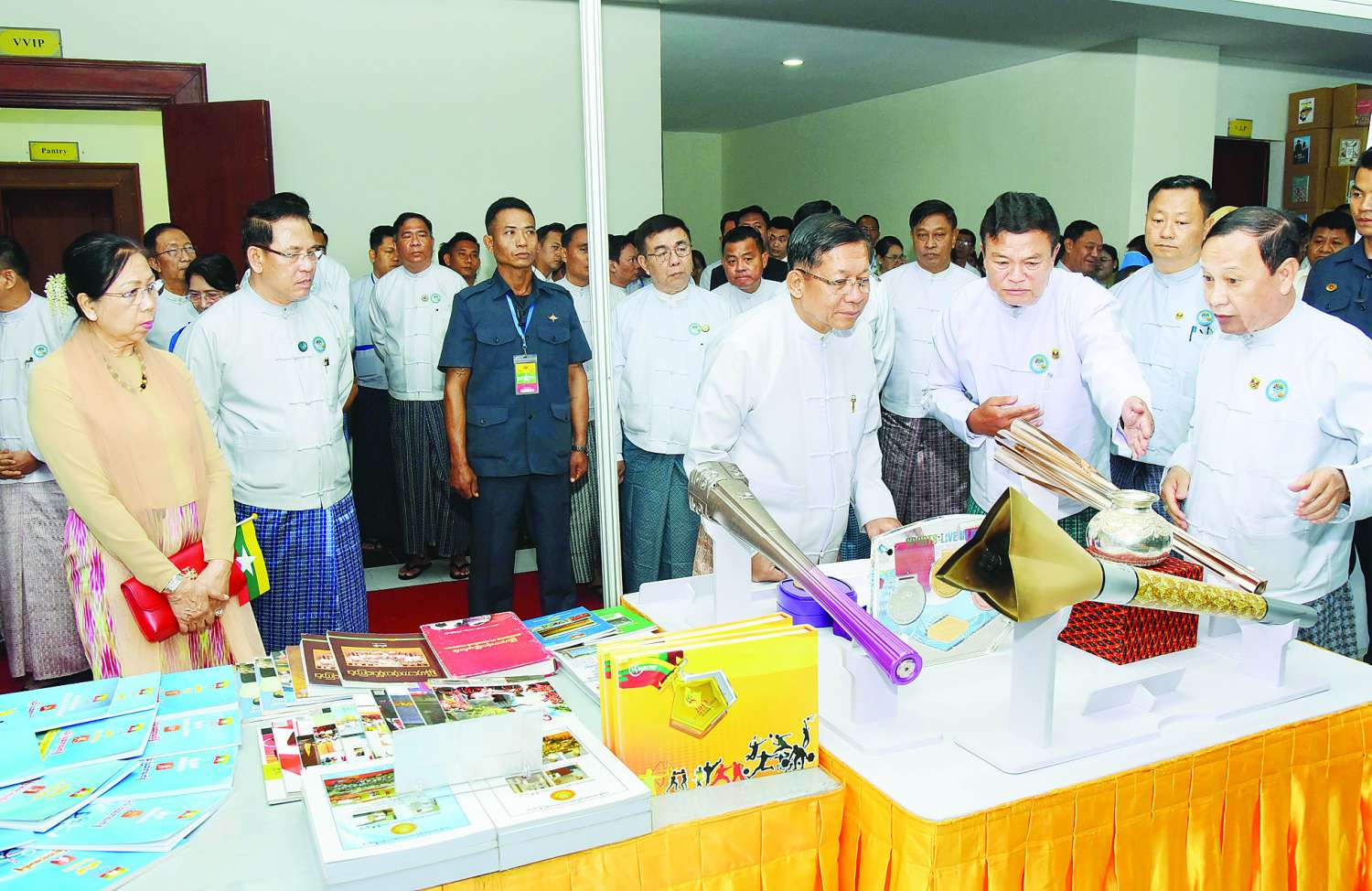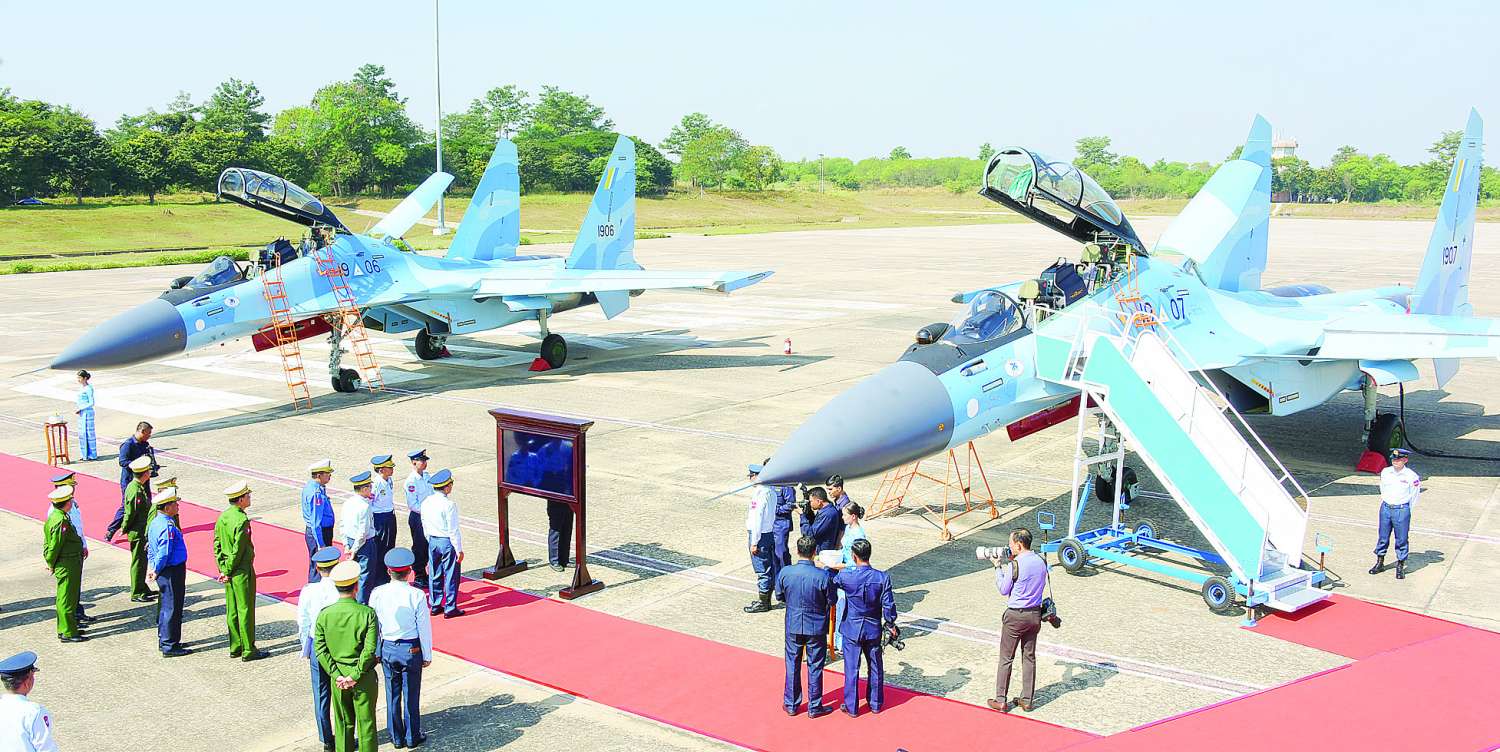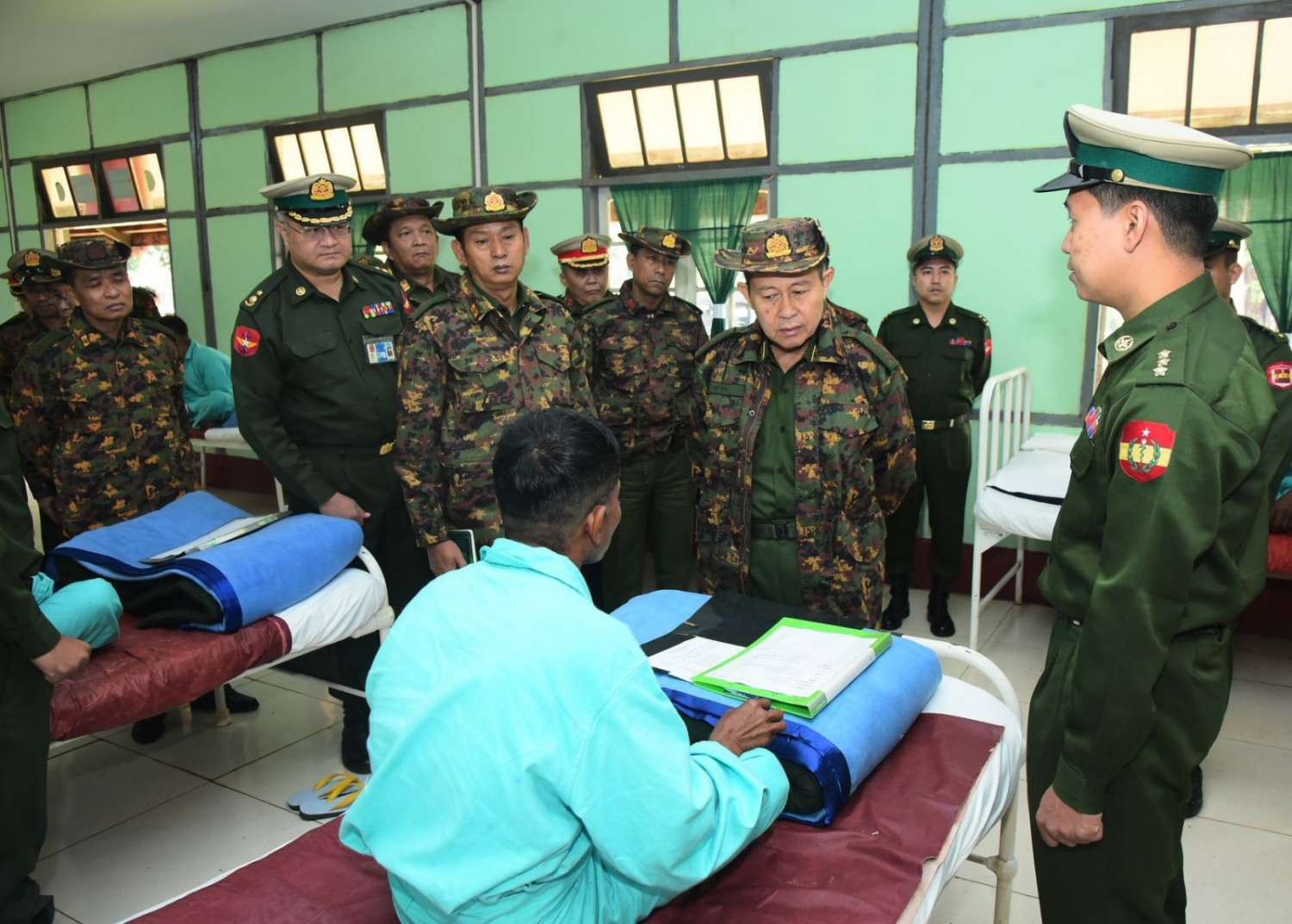‘It’s all the fault of colonialists’

Min Aung Hlaing has again ratcheted up his blame game as he seeks to evade responsibility for the country’s escalating post-coup crisis. This time it was Britain that he targeted.
At advance celebrations for Independence Day on Jan. 4, which marks the day Myanmar gained independence from the British in 1948, Min Aung Hlaing on Wednesday pointed the finger of blame at “British colonialists”.
The impact of the colonialists’ divide-and-rule policy continued to affect ethnic groups in Myanmar, he claimed, referring to offensives being conducted against his regime by armed organizations representing various ethnic groups.
He was speaking after his regime lost control of several major towns and hundreds of outposts in northern Shan, Chin, Kayah, and Rakhine states, as well as Sagaing Region.
The ethnic armed Brotherhood Alliance, responding to rumors of Chinese involvement in its offensive in northern Shan State, said they were under the influence of no country or organization and had only one objective: to root out the military dictatorship.
Min Aung Hlaing will keep pointing the finger over the crisis that has engulfed Myanmar since his coup, ignoring the fact that all the blame lies with him.
Praise for killer pilots

The Myanmar Air Force marked its 76th anniversary on Dec. 15 by commissioning two new Russian-made Su-30 fighters. Speaking at the ceremony, Min Aung Hlaing praised the air force for its “outstanding performance” in combat across northern Shan State, suggesting, contrary to the facts, that the regime may be gaining the upper hand in the fighting.
The junta boss is right to thank his air force. Without its efforts in propping up the army, Min Aung Hlaing might have already lost the war by now. The regime has been heavily reliant on its air force for several months now, as its army – once considered the most powerful branch of Myanmar’s military – has been seriously depleted and demoralized. Despite its fleet of jet fighters and gunships, the regime has lost 21 towns and hundreds of outposts in less than two months since the ethnic Brotherhood Alliance launched Operation 1027 in late October.
Junta pilot Major Khaing Thant Moe, who was captured by Karenni resistance forces, has admitted to conducting bombing raids targeting the civilian population.
Min Aung Hlaing is apparently ignorant of the fact that he can’t win the war without public support, no matter how many SU-30 fighters he has.
Wasted trips

On December 16, seven weeks after the launch of the Operation 1027 anti-regime offensive, deputy junta chief Soe Win made his first trip to northern Shan State, where he comforted wounded soldiers at a military hospital in Lashio and met junta-affiliated militias and troops and their families.
Min Aung Hlaing had visited the same hospital a week earlier on December 10. However, the junta leaders apparently failed in their mission to give troops a much-needed morale booster.
Just hours before Soe Win’s arrival, the Ta’ang National Liberation Army, a member of the tripartite Brotherhood Alliance, seized Namhsan, a town renowned for tea production. On December 19, three days after Soe Win returned from Lashio, the Brotherhood Alliance seized the strategic border town of Namkham. Junta troops are now engaged in a fierce battle for Kutkai Township, which lies on the Lashio-Muse road, just one mile from Lashio Town.
Despite recent talks mediated by China, the fighting between regime troops and the Brotherhood Alliance continues to rage in northern Shan State.

















